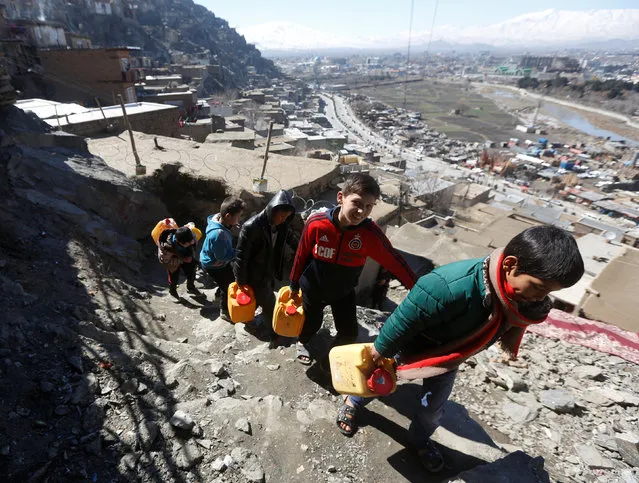
Afghan boys carry water as they climb a hill in Kabul, Afghanistan February 20, 2017. A growing population is straining water supplies in Afghanistan's capital, forcing those who can afford it to dig unregulated wells ever deeper to tap a falling water table. Finding water in arid Afghanistan is virtually always a challenge, but a drop in the groundwater level in Kabul caused by overuse and drought is making it even more difficult for residents, especially the poor. Modern Kabul was originally planned to support about 1 million people, but is now home to more than 4.6 million, according to U.S. government estimates, with people fleeing violence and seeking jobs thronging into urban centers. Several unseasonably dry winters, with little rain and a dusting of snow, have exacerbated the problem. Heavy rain and snow this year has raised hopes that groundwater can be replenished, at least for a while. Since 2001, Kabul's sprawl has expanded by nearly 2,500 square kilometers (965 square miles), according to the World Bank, with some of the poorest arrivals perched in homes on rocky hills around the city, where wells are generally non-existent. At the base of the hills, children cluster around hand-operated pumps, filling buckets and cans before climbing back up to their homes. People who can afford it usually dig a well rather than depending on the city's limited water system, but they are having to go ever deeper to reach the receding water. The depth of a well varies across the city, but Khan said many residents are being forced to dig 10 to 20 meters (32-64 feet) deeper than in the past. In some cases, wells have to go down 150 meters (492 feet) or more to reach clean water, at a cost of more than $5,200, he said, a price out of reach of many people. Officials say well digging has spiraled out of control, with little or no regulation of how the ever more scarce water is exploited. In the past, residents have been banned from digging wells within 100 meters (328 feet) of each other, but wells are now routinely dug 5 to 10 meters (16-32 feet) apart, sucking ever more water from the aquifers. The government was looking to implement a licensing system. The ministry of water and power did not respond to requests for comment. Poor residents are not optimistic authorities will get a grip on the problem, at least in a way that will help them get better access. (Photo by Omar Sobhani/Reuters)
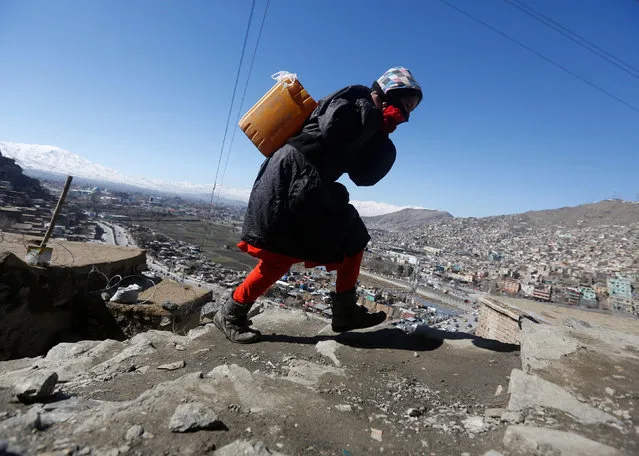
An Afghan girl carries water on her back as she climbs a hill in Kabul, Afghanistan February 20, 2017. (Photo by Omar Sobhani/Reuters)
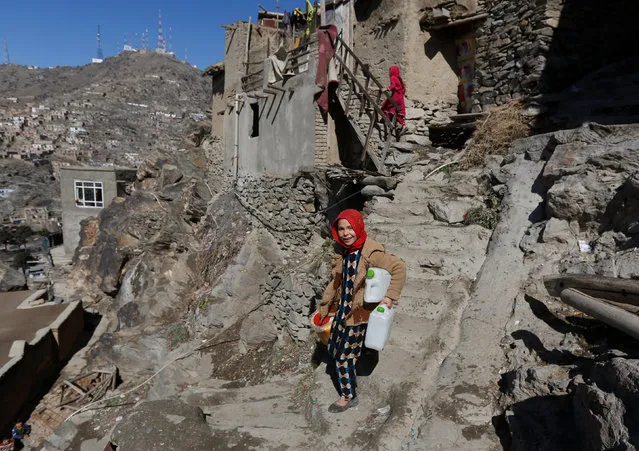
An Afghan girl carries empty water containers to refill at a public pump in Kabul, Afghanistan February 20, 2017. (Photo by Omar Sobhani/Reuters)
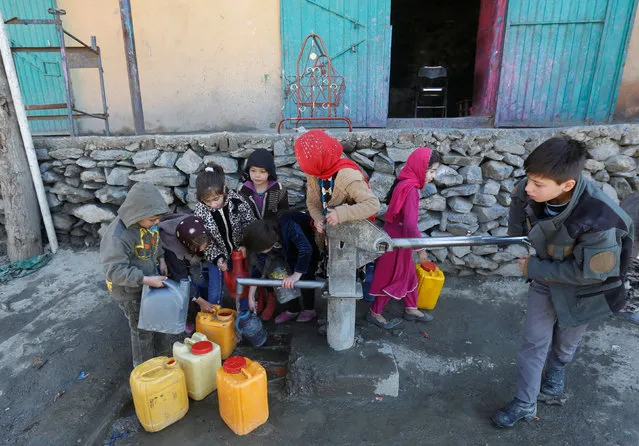
Afghan children collect water from a public water pump in Kabul, Afghanistan February 20, 2017. (Photo by Omar Sobhani/Reuters)
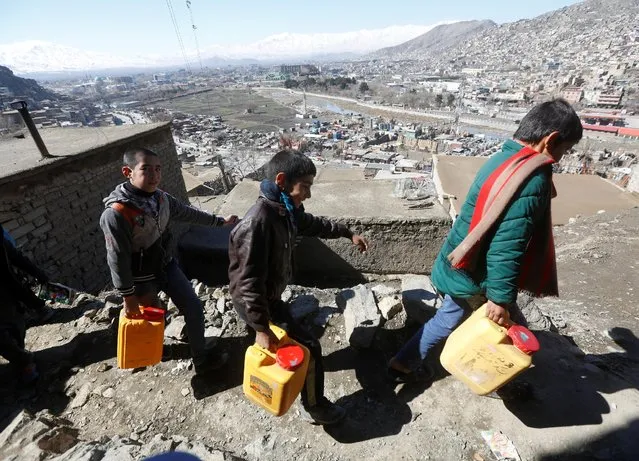
Afghan boys carry water they as they climb a hill in Kabul, Afghanistan February 20, 2017. (Photo by Omar Sobhani/Reuters)
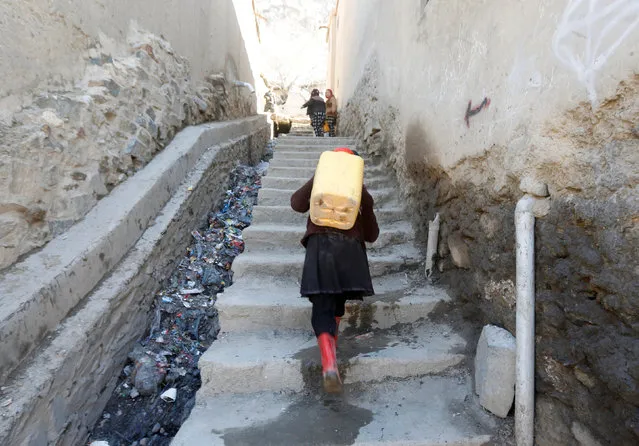
An Afghan girl carries water on her back as she climbs a hill in Kabul, Afghanistan February 20, 2017. (Photo by Omar Sobhani/Reuters)
02 Mar 2017 00:05:00,
post received
0 comments
